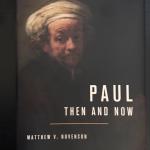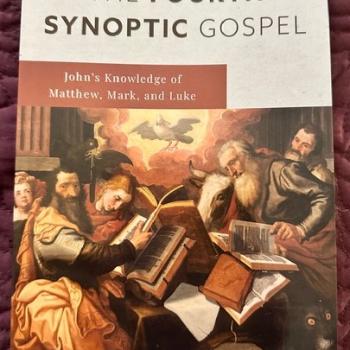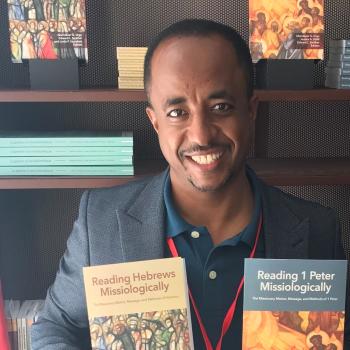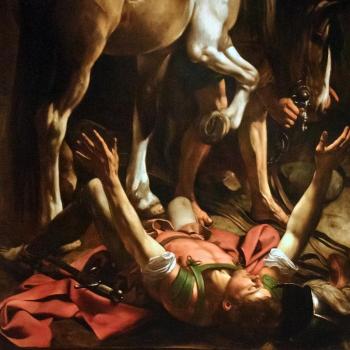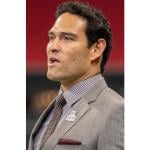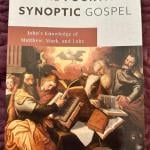In this instalment, I begin my interview with Dr. Matthew Novenson. My previous post provides a review of Dr. Novenson’s new book Paul, Then and Now (Eerdmans, 2022; click here to see the review). Dr. Novenson is Senior Lecturer in New Testament and Christian Origins at the University of Edinburgh, Scotland. In this instalment we will cover some questions from the earlier chapters of his book Paul, Then and Now.
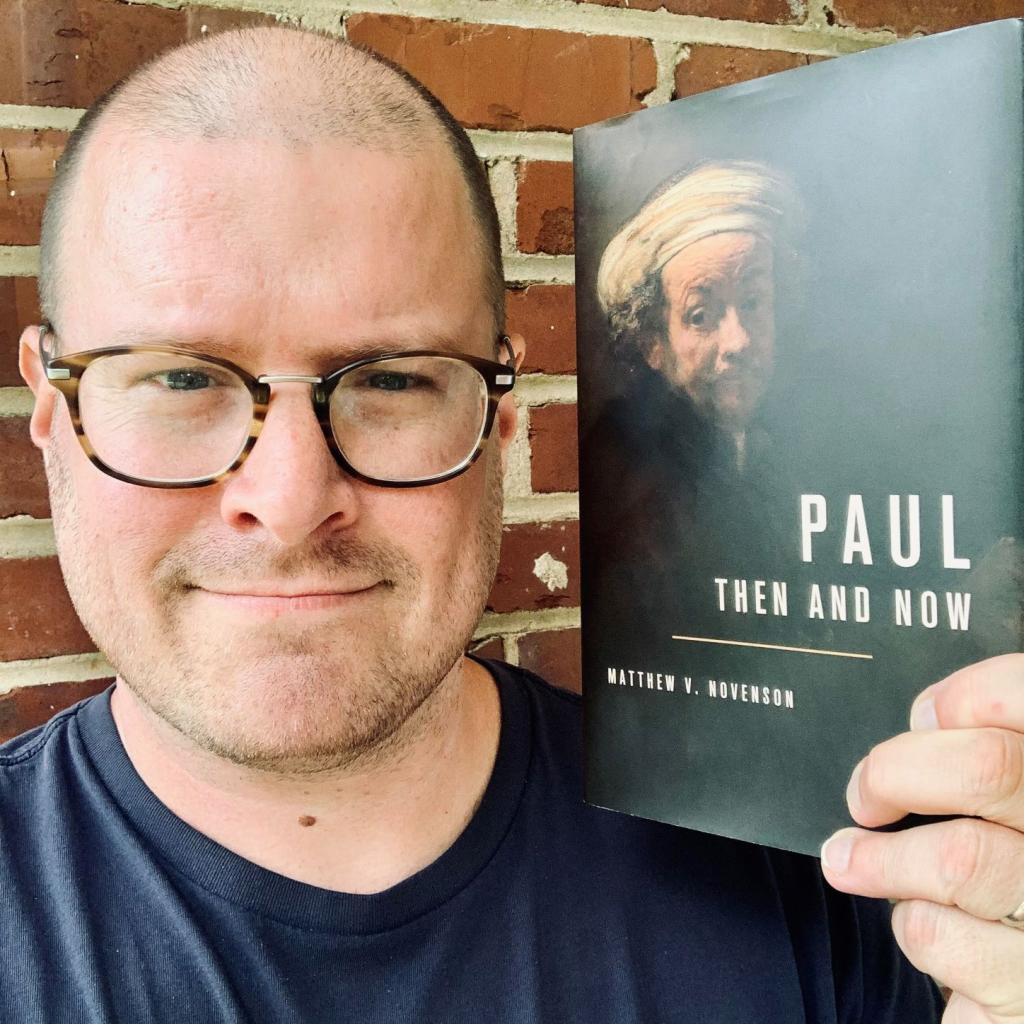
The Interview: Part I
I had the honor of interviewing Dr. Matthew Novenson. Welcome!
Novenson:
Thanks for taking the time to read the book; I’m honoured.
Oropeza:
In the opening chapter of your book, Paul, Then and Now, I like how you bring up that too often our interpretation of Paul in the “now” resorts to normalizing Paul. And this is not a good thing. Our getting back to Paul back “then” should become an investigation that discovers him as “weird.” And that’s a good thing!
So here is my first question related to what you wrote:
What do you think would make a theology of Paul “weird” in a good sense of the term?
Novenson:
The weirdness of Paul that I draw out in the book is mostly of a kind that is probably just not recoverable for Christian theology, at least not at all simply or straightforwardly. Theology, it seems to me, has to commend ideas that are believable and actionable for people in the present. But to do so responsibly means owning a lot of constructive work that goes well beyond what the letters of Paul (or any other biblical texts) themselves say.
There are, to be sure, some sophisticated theological readings of Paul that focus precisely on the weirder aspects of his letters—Karl Barth’s Romans commentary comes to mind as a marquee example. But even these are constructive and presentist; and that’s okay, because they could not be otherwise.
Oropeza:
What would you consider to be Paul’s central convictions or motivations? I would also like to know what you consider to be some of Paul’s central ideas.
Novenson:
A standout example—I think that one of Paul’s foremost, animating convictions was that the resurrection of the dead and the final, immortal, beatific state was at hand now, in his own generation.
But we all know, as Paul did not know, that that belief turned out not to be true (i.e., the final state did not take place in his generation). Depending on one’s understanding of the function of Scripture, Christian theology can, and perhaps should, reinterpret Paul’s sayings about all this (“the end of the ages has come”, “the form of the cosmos is passing away”, etc.) in ways that can be commended as true and life-giving. But to do so is always, necessarily to make new meanings out of the old words.
Oropeza:
You write that Paul did not abandon “Judaism,” which really didn’t exist as such in the first century; the proper understanding back then would be one’s “ancestral traditions.” Such traditions include that the God of Abraham is Creator of all things, reverence for Law as God’s revelation to Israel, resurrection of the dead, and so forth. Paul never abandoned these.
Scholars who work within the “Paul within Judaism” perspective would tend to agree with you on these points. Do you consider yourself to be a “Paul within Judaism” scholar? If not, how is your position different? How would you classify yourself?
Novensen:
I have been, and continue to be, an enthusiastic participant in the “Paul within Judaism” discussion ever since Mark Nanos and Magnus Zetterholm started it at the Society of Biblical Literature (SBL) conference in 2010.
I think it has been a great boon to the field, and I think, moreover, that any serious first-century historical reading of Paul has to have truck with it (see Paula Fredriksen’s recent article in the June 2022 Journal of Biblical Literature).
But I am also very skeptical of all labels for movements in research, including this one (as well as New Perspective, Apocalyptic, and the rest). Labels often, perhaps always, obscure even more than they clarify.
So while I am immensely proud to be associated with all my brilliant colleagues in the “Paul within Judaism” section of the SBL (Nanos, Zetterholm, Fredriksen, Eisenbaum, Ehrensperger, Dibley, et al.), I generally prefer to skip the labels and just take each interpreter’s reading on its own merits: Eisenbaum’s Paul, or Concannon’s Paul, or Barclay’s Paul, or what have you. That way we actually talk about the particular claims being made, which I think should—usually and for most purposes—be our goal.
Oropeza:
I agree with you in chapter 4 of your book regarding how Paul held to his people’s ancestral traditions. However, I have a question regarding Paul holding to cultic worship of God in the temple in Jerusalem. You support this by referring to Romans 9:4 and 1 Corinthians 10:18.
In Roman 9:4, with regard to the cultic service that Paul commends, it seems to me that he may be reinterpreting this service in light of the death of Christ (as, for example, in Rom 3:24–25; 1 Cor 5:6–8).
In 1 Corinthians 10:18, Paul considered the cultic service to be “Israel according to the flesh.” Where I do find Paul participating in the old cultic system is in the Book of Acts—for example, his sacrifice in Jerusalem in Acts 21:23–26.
But this raises a question for me regarding the use of the book of Acts to support what we think about Paul. His sacrifice in Acts supports that he keeps ancestral cultic traditions. But at the same time, the multiple persecutions he experiences from his compatriots in Acts suggest more is going on here than what is argued in chapter four your book. In Acts, the root of the problem of the persecutions he faces cannot be easily reduced simply to his recruitment of pagans to the Jewish movement and getting them to renounce their gods.
How should we interpret the Paul of Acts? Personally, I don’t think it would be fair for me to appeal to Acts only when it happens to support my viewpoint, and ignore it when it doesn’t. Should scholars appeal to all of it, “warts and all” (a James Dunn phrase) even if it creates tensions with their viewpoints? As a historicist, I would love to hear how you handle Acts.
Novenson:
I take the Greek words doxa (divine presence) and latreia (temple cult) in Romans 9:4 to be shorthand references to the same phenomenon described in 1 Corinthians 10:18 (participating in sacrifices at the altar). Namely, this refers to Israelites (i.e., Jews) worshiping their god at their ancestral temple. It is surely significant that in both these passages Paul expressly mentions Israel as the actors. So I do not see any evidence in either of these texts for a veiled reference to the death of Jesus.
The story in Acts 21, then, is a literary set piece (which may or may not have happened as narrated) that basically confirms the impression I would have had of Paul’s attitude to the Jerusalem temple from his letters.
Does this mean that I am guilty of special pleading with respect to Acts? I take your point; I see where one might worry about that. But no, I do not think I am so guilty. With all historical sources, we are always weighing and sifting. I don’t think we have any obligation to take any source at face value, as a whole, suspending judgment, etc. So I think my use of Acts and the letters on this issue is fair play.
Oropeza:
We will continue this discussion of Paul, Then and Now in Part II of this interview with Matthew Novenson. So stay tuned!



